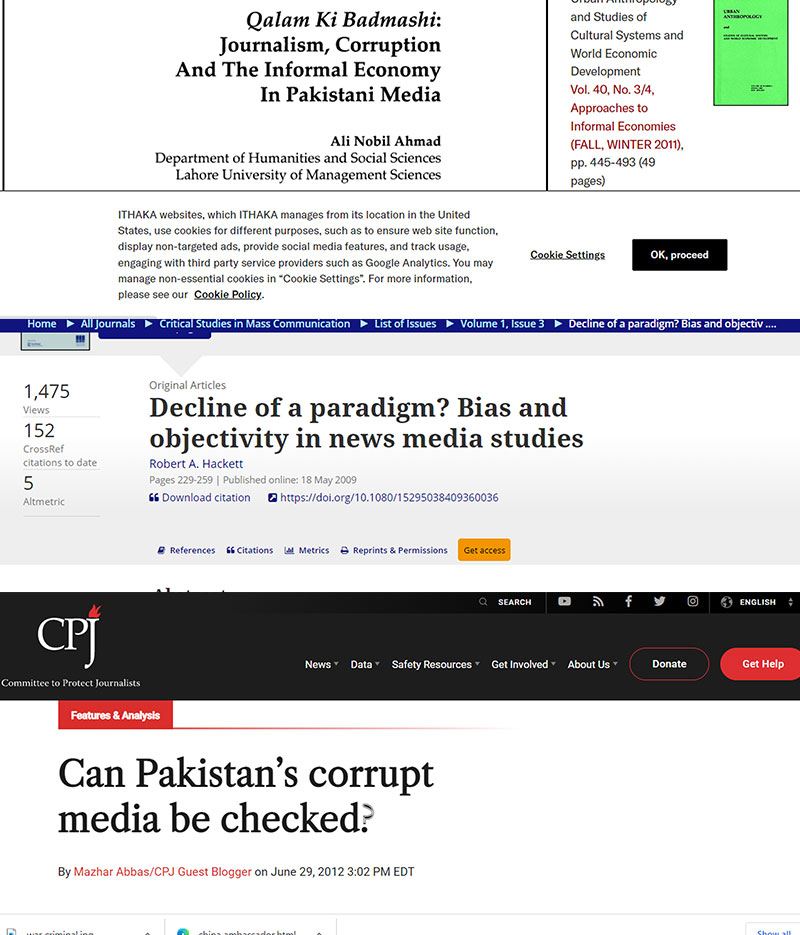By Iftekhar Hussain
I was reading some Indian newspapers yesterday and what I got can be seen in the images. But then I was astonished to see that the same type of news content is also in our own media. One media article starts with this like- ‘Imran Khan’s ship is sinking’. Is it not like making the reader believe it, or enforcing a viewpoint on the reader’s mind. Positive and negative events unfold on different timescales among the events that do occur. The news is closer to play-by-play sports commentary than a “first draft of history.” It concentrates on specific events that occurred since the previous edition (in earlier times, the day before; now, seconds before).
Because of a mental bug called the Availability heuristic by psychologists Amos Tversky and Daniel Kahneman, the nature of news is likely to distort people’s views of the world. People estimate the probability of an event or the frequency of a kind of thing based on how easily instances come to mind. This is a good rule of thumb to follow in many situations. People will overestimate how likely a memory is in the world if it appears high on the result list of the mind’s search engine for reasons other than frequency—for example, because it is recent, vivid, gory, distinctive, or upsetting.
Plane crashes are frequently covered in the media, but car accidents, which kill far more people, are almost never covered. Many people, predictably, fear flying, but almost no one fears driving. People consider tornadoes to be a more common cause of death than asthma (which kills over 4,000 Americans annually), presumably because tornadoes make for better television.
People’s perceptions of the world are likely to be distorted by news.
Kalev Leetaru, a data scientist, used sentiment mining to analyze every New York Times article published between 1945 and 2005, as well as an archive of translated articles and broadcasts from 130 countries between 1979 and 2010. Sentiment mining determines a text’s emotional tone by counting the number and contexts of words with positive and negative connotations such as good, nice, terrible, and horrific.
Negative news has negative consequences in and of itself. Heavy newswatchers can become miscalibrated, far from being better informed. Even when crime rates are falling, they are more concerned about crime, and sometimes they completely disregard reality: according to a 2016 poll, a large majority of Americans closely follow news about Isis, with 77 percent agreeing that “Islamic militants operating in Syria and Iraq pose a serious threat to the existence or survival of the United States,” a belief that is nothing short of delusional.
Negative news consumers, predictably, become depressed: “misperception of risk, anxiety, lower mood levels, learned helplessness, contempt and hostility toward others, desensitization, and in some cases, complete avoidance of the news,” according to a recent literature review. They also become pessimistic, saying things like, “Why should I vote?” “I could donate money, but next week there will be another kid who is hungry,” or “I could donate money, but next week there will be another kid who is hungry.”



